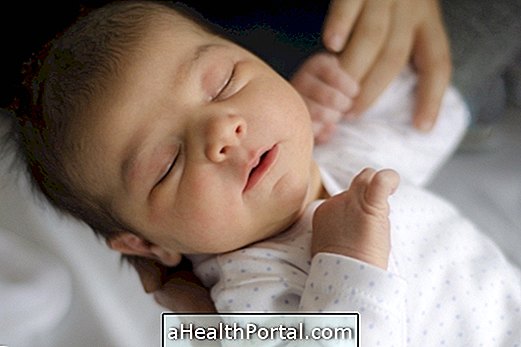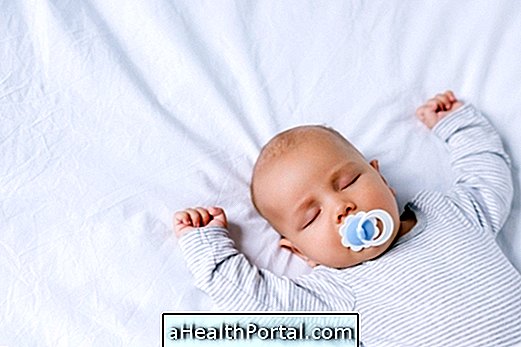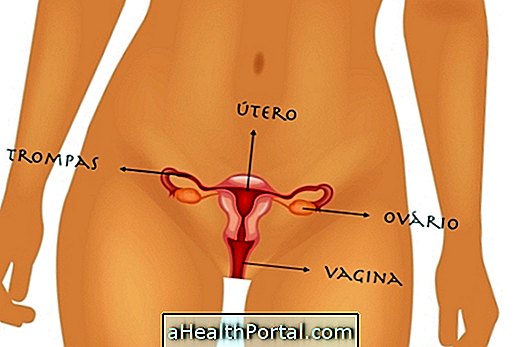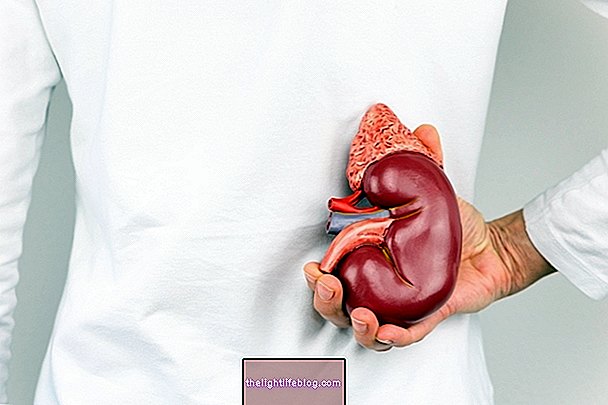Encopresis is leakage of feces in the child's underwear, which most often happens involuntarily and without the child's awareness.
This incontinence usually arises from a previous constipation, with accumulation of hard stools, usually due to psychological causes. Therefore, the main form of treatment is with psychotherapy with a child psychologist and follow-up by the pediatrician, which may indicate ways to improve stool consistency and treat constipation.
Although it is more common in boys after age 4, encopresis can occur at any age, affecting both men and women. In adults, fecal incontinence affects the elderly more, mainly due to alterations in the functioning of the rectus muscles and anus caused by childbirth, surgeries or deformities in the region. Check out more causes and how to treat this problem in adults in fecal incontinence.
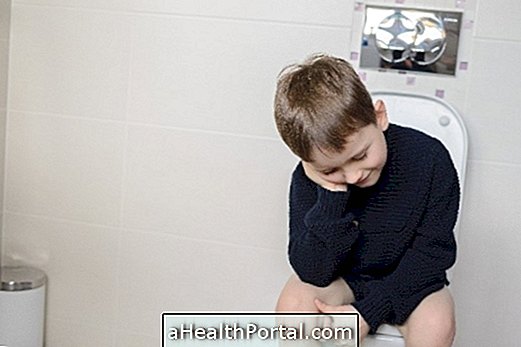
What are the causes
Although it may be due to changes in the child's digestive tract, encopresis is often associated with chronic constipation, causing hard, dry stools to accumulate in the final region of the intestine. In this way, the muscle tone and sensitivity of the region are impaired, and there is leakage of feces, without the child noticing or managing to control.
The main causes of stool retention in the child include:
- Fear or shame of using the toilet;
- Anxiety during learning to use the toilet;
- Being undergoing a period of stress;
- Difficulty in reaching or accessing the bathroom;
- Diet with low fiber and with excess fats and carbohydrates;
- Low fluid intake;
- Anal fissure, which causes pain during bowel movement.
- Diseases that slow the functioning of the intestine, as in hypothyroidism.
- Mental problems, such as attention deficit hyperactivity disorder or schizophrenia.
Encopresis occurs in children 4 years of age or older, because before this age, it is common to have greater difficulty in controlling the anal sphincter. In addition, it is common for encopresis to be accompanied by enuresis, which is urinary incontinence at night. Find out when it is normal for the child to pee in bed.
How is the treatment done?
Encopresis has a cure, and in order to be treated it is necessary to resolve the cause, and it is essential to be patient and help the child develop a habit of using the toilet regularly, as well as making improvements in food, fruits, vegetables and liquids, such as prevent persistent constipation. Learn what to do to fight constipation in the child.
The pediatrician or gastroenterologist may indicate the use of laxatives, in syrup, tablet or suppositories such as Lactulose or Polyethyleneglycol, for example
. Performing psychotherapy is also important for the child to be more comfortable with the use of the toilet and evacuation, and one of the techniques widely used by psychologists is play therapy, in which the child releases their feelings and problems through play.
If the encopresis is caused by a disease that affects the digestive tract of the child, it may be necessary to make specific treatment of the disease and, in rarer situations, surgery.
Consequences of encopresis
Encopresis can have some negative consequences on the child, such as low self-esteem, irritation, social isolation. Therefore, it is very important that during the treatment, the parents give support to the child, avoiding excessive criticism.

